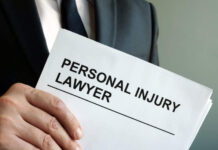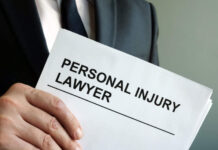How many times have you received a defective product? Perhaps you bought a fresh gallon of milk only to realize it had expired before it’s expiration date, or maybe you bought some food from the deli and got food poisoning. If this is the case:
- Who is liable for your injury?
- What can you do in such a situation?
- Can you file a lawsuit against the company?
According to an Oakland accident injury lawyer, you have full right to file a personal injury lawsuit against the entity that caused you harm.
What Is Product Liability?
Product liability can lay in the hands of the manufacturer, retailer, or seller for allowing defective products to reach consumers, regardless of the consumer’s own negligence. Product liability laws define who is responsible for the defective product.
Product liability laws state that every entity responsible for delivering the product to the consumer can be liable for the defective product. The product liability laws are different from state to state, but the severity remains the same.
A defective product can be defined as an unreasonably dangerous product when being used for the intended purpose. To be more specific, a defective product is a product that injures the consumer.
Product Defects That Can Lead To Claims
When identifying whether or not you have any claims regarding a defective product, you must clearly understand the broad categories of defective product claims.
The following is the list of claims you can make.
1. Design Defects
Design defects are related to the design defect of the product. This kind of defect happens even before reaching the manufacturing process. The company is liable for a design defect when a foreseeable risk will happen during the manufacturing process.
To file a lawsuit against the company on a design defect, you would need to show evidence that having a different design could have caused your injury to be avoided.
2. Manufacturers Defects
Manufacturing defects mean product defects that happen during the manufacturing process. Therefore, there is always a possibility that during the manufacturing process, the product could become unreasonably dangerous.
Manufacturing defects are generally easier to fix, as the defects can be taken care of by simply modifying the machine or changing the material of the products.
3. Marketing Defects
Marketing defects arise from the lack of sufficient instruction about the products. These include a user guide, using instructions, and warning about the product’s use. These are the flaws in which the product is marketed to the consumers.
Marketing defects are mostly affiliated with the company’s failure to warn its consumers about the danger that comes with the usage of the products. Additionally, these types of defects mostly result in injuries sustained by the products.
What Should You Know About Defective Product Lawsuits?
For the victim to prove their injuries caused by a defective product, the injured party needs to fulfill three conditions.
- The product was unreasonably dangerous.
- The defect was the reason for the injury while the product was being used.
- The product was not modified from its original state.
Proving these three conditions are the toughest part of a defective product liability lawsuit. This is because some of the defects can be created due to the mishandling of the product. Hence, you must be prepared to accept or deny any changes you have made with the product.
Furthermore, the lawsuit encapsulates the company or the manufacturers and every entity that has been in contact with the product in the distribution chain.
For instance:
- Manufacturer of the component parts.
- Manufacturers of the completed product.
- Wholesaler.
- Retailer.
Hire A Product Liability Lawyer
Companies that manufacture, design, and produce products must ensure their products are safe for consumers. If a defective product has injured you, you may be eligible for financial compensation.
However, you must first prove the product was at fault. This is where you can seek help from a product liability lawyer. They can help you with their expertise and guide you throughout the lawsuit.



































































